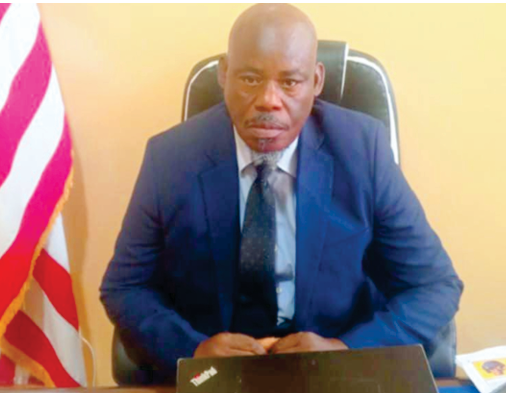Criminal Court ‘B’ Judge Urges Swift Justice for 2,181 Pretrial Detainees

Assigned Judge of Criminal Court ‘B’ in the 1st Judicial Circuit of Montserrado County, His Honor Wesseh Alphonsus Wesseh, has made an urgent appeal for stronger legal aid services to address Liberia’s growing pretrial detention crisis. Delivering the joint charge for Criminal Courts A, B, C, D, and E during the opening of the August Term of Court, Judge Wesseh called on the Liberia National Bar Association (LNBA) to intensify its legal aid program to fast-track trials for the country’s 2,181 pretrial detainees. According to figures presented by Judge Wesseh, as of July 31, 2025, Liberia’s prison population stands at 3,340 inmates—comprising 2,181 individuals awaiting trial and 1,159 convicted prisoners. While these numbers may appear modest compared to some neighboring countries, the Judge emphasized that they expose a troubling reality: severe overcrowding, dilapidated facilities, and unsafe conditions that threaten the health, dignity, and rights of detainees. Judge Wesseh stressed that his statistics were not intended to minimize the scale of the problem but to underscore the pressing need for comprehensive reform in prison management, rehabilitation programs, and detainee welfare. His remarks echoed recent calls by Incoming Chief Justice Yamie Gbeisay for the construction of new national prison facilities to ease pressure on the current system. Highlighting systemic challenges, Judge Wesseh warned that the situation is further complicated by occasional jailbreaks and the inability of existing infrastructure—particularly the National Palace of Correction in Zwedru, Grand Gedeh County to accommodate the growing number of detainees. He urged the Executive Branch, through the Ministry of Justice, to prioritize the development of modern, well-managed correctional facilities across the country. Citing Article 21(e) of the 1986 Constitution, the Judge reminded the public that no one should be subjected to torture or inhumane treatment while in custody, and that pretrial detainees must be presumed innocent until proven guilty. He issued a strong appeal to prosecutors, defense lawyers, and court officials to uphold their obligations in ensuring timely trials, warning that courts will release detainees who have exceeded statutory detention limits without just cause—particularly those accused of minor offenses. In a bid to enhance judicial efficiency, Judge Wesseh announced plans to assign cases proactively, with or without consultation from attorneys, to prevent unnecessary delays. He further encouraged magistrates to apply existing provisions of the law that allow for the release of certain defendants without bail if they are deemed likely to appear for future court dates. Such measures, he noted, could significantly reduce overcrowding. The Judge also called on the Ministry of Justice and the Public Defense Office to strengthen training programs for both prosecutors and defense attorneys, lamenting a decline in courtroom performance since more rigorous training was standard nearly a decade ago. “Continuous professional development is critical,” he said. “All courtroom actors must fully understand their roles and responsibilities to ensure the fair and effective administration of justice.” Addressing potential jurors, Judge Wesseh underscored the importance of civic duty in the trial process, warning that misconduct in the jury box would be met with firm penalties. He also emphasized the need for maintaining cleanliness in court facilities, cautioning that littering within the court’s precincts could result in prosecution. With these pronouncements, Judge Wesseh formally declared open the Criminal Assizes Courts A, B, C, D, and E for the August Term of 2025, reaffirming his commitment to delivering justice without delay and ensuring that legal accountability is upheld at every level of the judiciary. “This is not simply a matter of numbers,” the Judge concluded. “It is about the human lives behind those statistics—men and women whose futures hang in the balance while they await their day in court. Justice delayed is justice denied, and we must act with urgency to restore confidence in the rule of law.”


